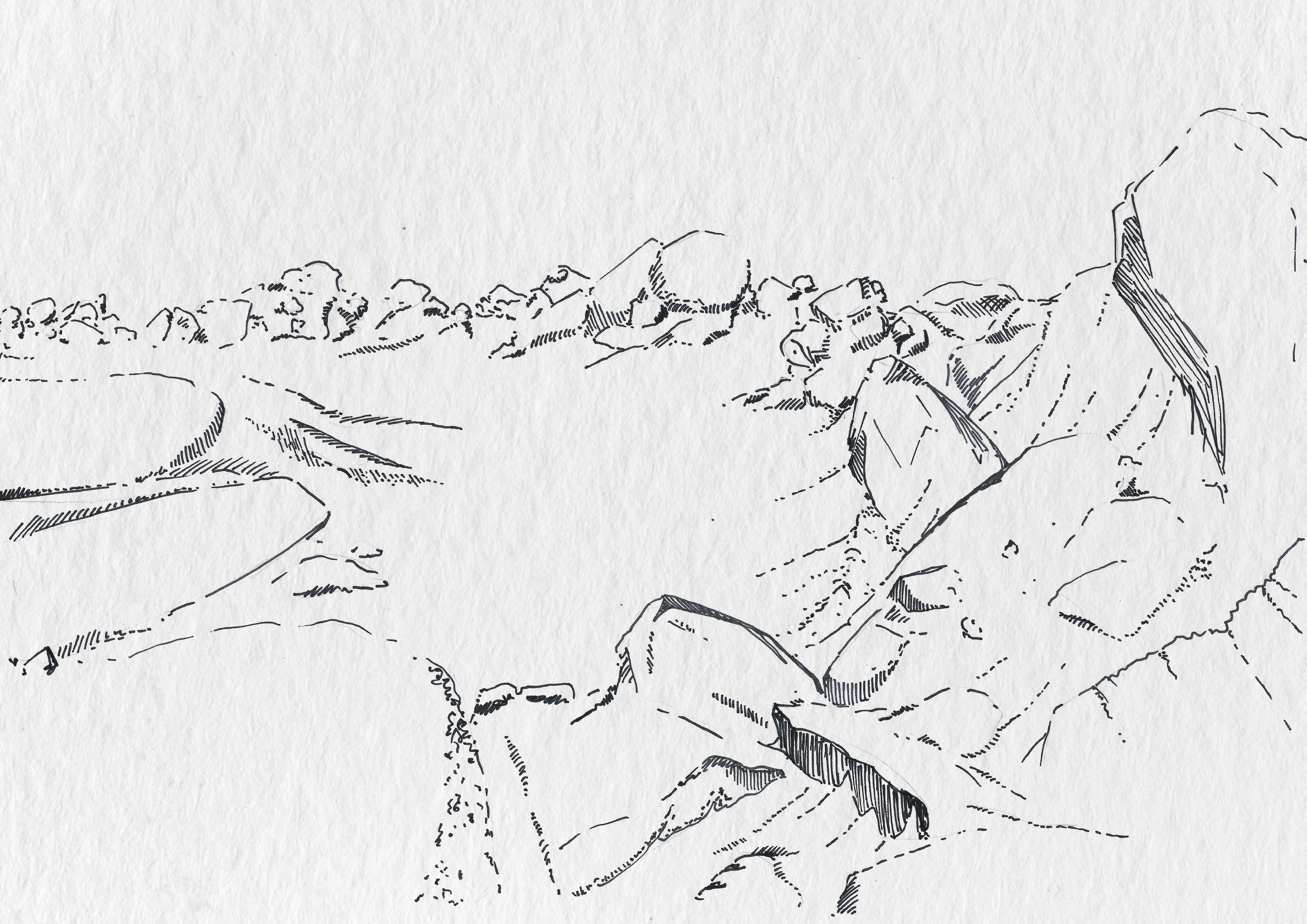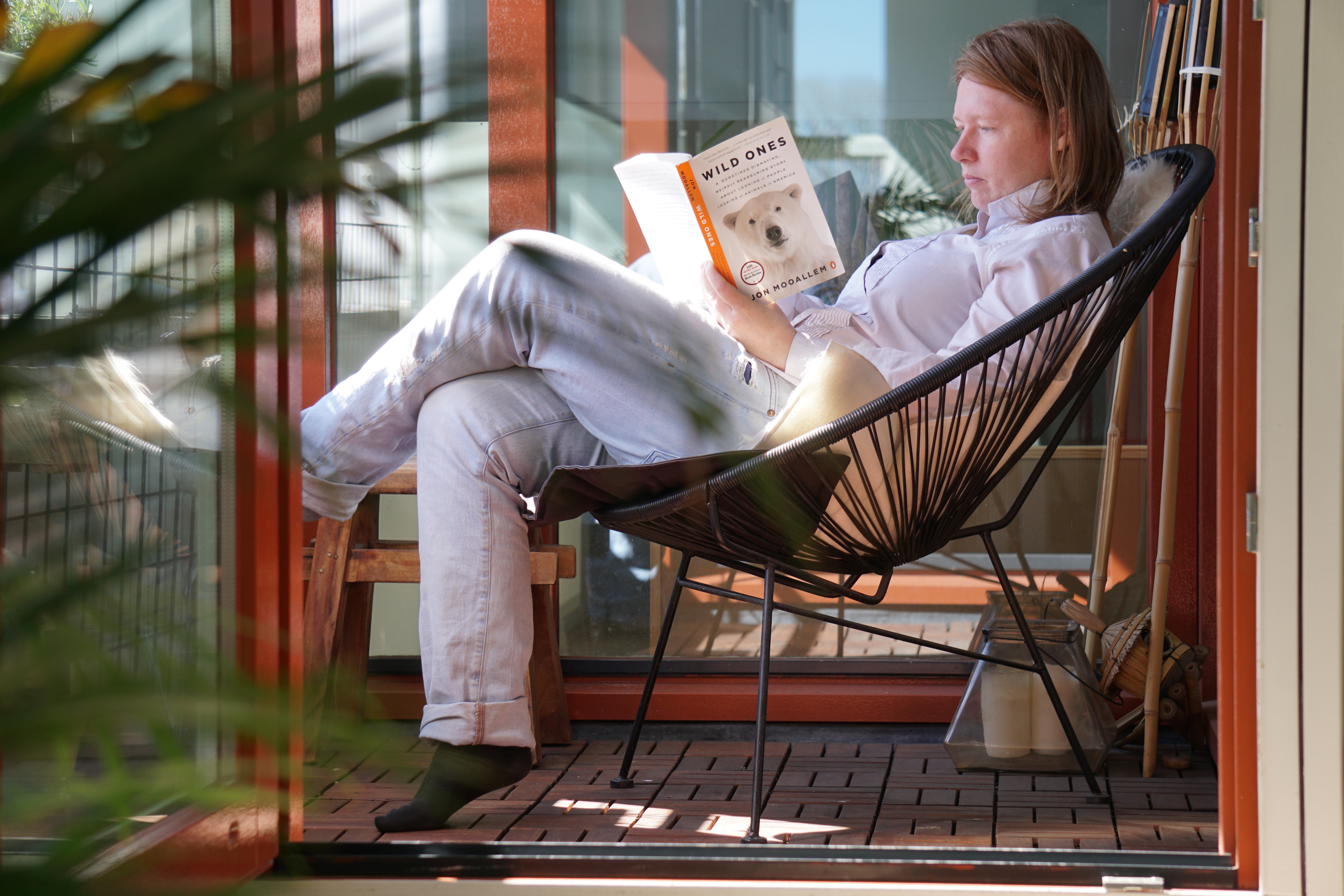Covid-19

The den survey and TEK collection activities in Coral Harbour were planned for March and April, but were postponed due to COVID-19. The Hamlet of Coral Harbour requested outside visitors stay away the day before most of the BearWatch team was set to arrive in the Hamlet, and the BearWatch PI’s respected their wishes.
I had, however, travelled North a day early, and arrived in the community on exactly the day that the Covid-19 epidemic was declared pandemic. Non-resident travel bans came into effect in Nunavut and the Northwest Territories immediately, while physical distancing requirements within communities were put in place a little later.
Spring Coral Harbour
You have run into an “ice-pressure ridge”. Ice pressure ridges" are re-directive agential forces that perform the de/markations and im/possibilities of how you can move through the knowledge-land-scape. The ice pressure ridge remind us that agency is not a property that is possessed by individual readers, researchers and authors. In this case, it is the change of seasons that forms such an ice-pressure ridge. Despite immediately rescheduling my flight back to the South after I had landed in Coral Harbour, the wind took a turn and blizzards delayed my departure from Coral Harbour by multiple days.
Indeed, I had travelled up to Coral Harbour during early spring and the weather was changeable. Although the seasons provide for transformative possibilities in the North, they also bring with them uncertainties. In this case, uncertainties related to stranding in a remote-region, away from home, during the unfolding of a global response to a pandemic spread of a respiratory virus.
Covid 19 Personal Whereabouts

The ice pressure ridge remind us that agency is not a property that is possessed by individual readers, researchers and authors. Our ways of becoming knowledgeable always correspond intra-dependently with conditions that are set by many other agential forces, both human and non-human.
When the spread of Covid-19 was declared a pandemic it shaped an ice-pressure ridge that was so immense, that it not so much required me to redirect- as it asked me to re-locate.
Making a New Home
In 2019, at the start of my doctoral studies I had relocated from Amsterdam, the Netherlands, to Ka'tarohkwi (the area known as Kingston, Ontario) on the traditional homelands of the Haudenosaunee, Anishinaabek and Huron-Wendat nations.
I arrived ready to commit- aspiring to make Kingston my new home.
Which it became, in multiple ways, over time.
The building of these relationships became somewhat more complicated from 2020 onwards, however . The COVID-19 pandemic ended up uprooting me from all my home-bases, both Dutch and Canadian.
The Netherlands in Isolation
After the Covid-19 pandemic broke out, I initially chose to take shelter in my country of origin; the Netherlands. I stayed there for three months.
I moved in with my sister and her family to save money. I slept on an airbed and shared a room with my 2-year old nephew. It was nice to be close to family. I preferred it above self-isolating in an apartment.

Nevertheless, my commitment to be present, and make a new home in Canada- combined with the financial stresses of maintaining two home-bases- eventually drew me back to Ontario at the first seemingly reasonable opportunity.
Kingston in Isolation
The reality of returning to Canada as an international student, during the Covid-19 pandemic, was- while I acknowledge my privilege of being able to stay safe and healthy- rough for me.
Once back in Ontario, I was stuck in my tiny in Kingston apartment by myself, without a university campus to go to, or access to the regions in which I would have to conduct my fieldwork.
I wrote a lot.
Falling In-Between
By June 2021 I had to return to the Netherlands for family matters. During this latter trip, I was offered an affordable apartment in Amsterdam- and decided, considering the ongoing uncertainty of Covid-19 pandemic to accept it.
One month later, In July 2021, I received the news that we could travel to Nunavut again for fieldwork, and Canada slowly started to open up again.
Becoming Nomadic
From July 2021 onward, I continued my PhD in a state of flux. I would come to Canada for fieldwork, and spent an average of six weeks up North each trip. I would then stay, on average, another six weeks in Ontario. Usually I would spend up to twelve weeks back home in the Netherlands, before I would return again to Canada.
This rotation was possible because of being awarded a Canada Graduate Vanier Scholarship, and my decision in September 2020 to purchase a campervan: "Butter". As a result of these two events, my time in Canada took a completely different shape in comparison to what it had been before.
You have found a way to "Return to Cut 1" and learn more about the creative outputs, through which we were planning to share Gjoa Haven's Voices of Thunder.
You can also "Return to Cut 3", if you were redirected by Covid-19 during your first fieldtrip to Coral Harbour.
Return to Cut 1: Voices of Thunder
